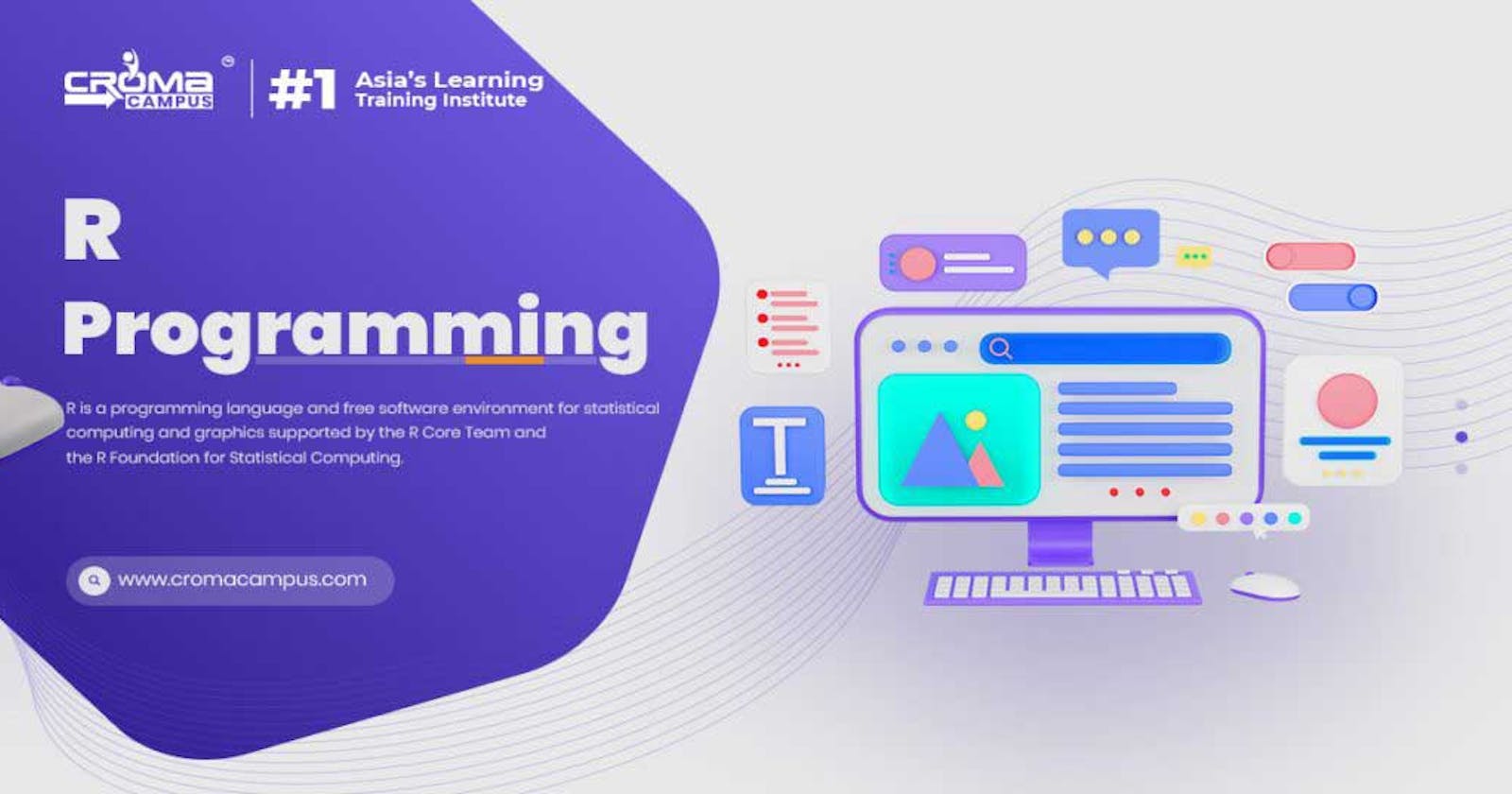R Programming
R is a programming language and free software environment specifically designed for statistical computing and graphics. R is widely used for statistical analysis, data visualization, machine learning, and data manipulation.
What are the Advantages of the R Programming Language?
R is a very popular and in-demand programming language and it comes with numerous packages for data analysis and statistical tasks. In addition, it offers various tools and functions to help a user implement complex algorithms. This is an ideal language for statistical analysis and it's a very popular choice among statistical analysts. Furthermore, this programming language comes with various built-in functions and libraries that allow you to access complex statistical tasks. R also provides data visualization capabilities and offers a flexible approach to creating data visualizations of various kinds. Apart from these, have a look at the Advantages of R Programming language in businesses.
Flexibility- R programming language ranked very superior in terms of flexibility and it allows you to create custom functions as per your specific needs.
Extensibility- This programming language is capable of interfacing with other Programming Languages. Some common languages that improve extensibility are C, Python, and Java.
Academic and research use- This is an ideal language for academia and research as it comes with great statistical and analytical power.
Data handling- This programming language offers numerous data handling capabilities and using it allows a business to import, clean, and manipulate the data.
Cost-effective solution- Being an open-source language, R is a cost-effective language and it's free for use and distribution. Various organizations use it as a powerful Data Analysis capability.
What are the Disadvantages of the R Programming Language?
Along with benefits, R also comes with a few disadvantages just like any other programming language. This language has a steep learning curve and it can be hard for newcomers to learn it. On average, learning R requires more time and effort for a beginner than other programming languages out there. It can even cause some performance limitations as being an interpreted language, it can cause issues while handling large datasets. Due to this reason, R is not used for high-performance computing tasks. Furthermore, it causes inefficient memory management while dealing with large datasets and this can result in slow performance.
Limited Object- Oriented Programming support- R does not provide very good support for Object-Oriented Programming. This can cause a restriction in designing certain programming and software.
Data security concerns- Being an open-source language, it may not be wise to trust R in terms of security in handling sensitive data. So, data privacy and security can be a concern in
Lack of commercial support- As it is an open-source language, there is no single entity that provides you with official commercial support.
Learning resources quality- There are many learning tutorials available for R and it can be an issue or confusion in which resource to trust and why.
Why Should You Use the R Programming Language?
Using the R programming language provides numerous benefits for a business that deals with statistics, data analytics, and research. It offers numerous statistical capabilities such as models and tests which makes it a great choice for historians and data analysts. In addition, this tool offers advanced graphics and visualization features and allows users to generate high-quality, customizable plots. Being an open-source language, R is freely available to use and modify as per the requirements. Many institutes provide R Programming Online Course and one can enroll in them to start a career in it. Apart from these, given below are some of the significant reasons why you should use the R programming language.
Active community- This tool has a very active and vast community that ensures that new byes can get lots of materials regarding tutorials, forums, workshops, and online courses.
Flexibility- It is a very flexible language and it offers integration capabilities with other languages such as Python, and SQL. This approach makes it a versatile language.
Data manipulation tools- R also facilitates data manipulation and comes with packages like dplyr and tidyr to manipulate data efficiently.
Reproducibility- It allows the creation of reproducible research documents by combining them with tools like RMarkdown. This approach is beneficial for reporting.
Conclusion
R is a popular high-performance programming language that's perfect for statistical analysis. This programming language is domain-specific, meaning that its features and applications are tailored to a particular field of application. R is a very well-liked and sought-after programming language with a plethora of packages for statistical and data analysis applications. The flexibility of the R programming language is highly valued, and it enables you to construct bespoke functions to meet your unique requirements. It is possible for this programming language to communicate with other programming languages. It is an extremely versatile language that can be integrated with SQL and Python, among other languages.
Read More:-
